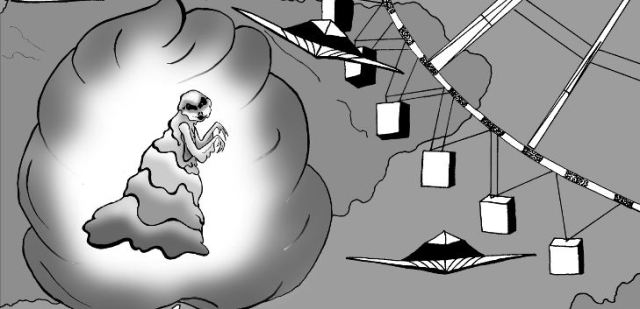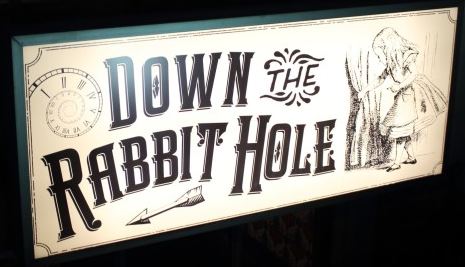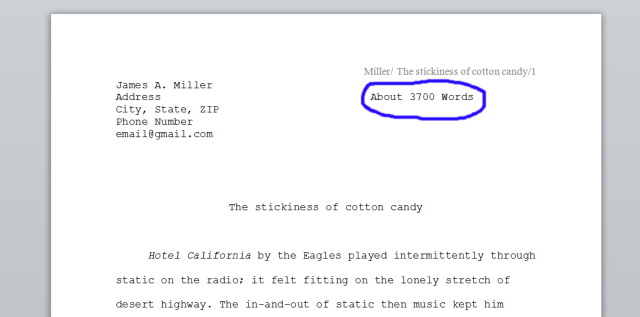
The insight I have gained reading slush for Allegory has been amazing. I already have a list of common mistakes from the story submissions I have read.
Here are things you shouldn’t do if you want me to move your story along for further consideration:
1. Telling instead of showing.
Telling:
Sarah liked Michael.
Showing:
Michael was in the hall. Sarah felt the same lightness in her stomach she had the first day he talked to her. If only he would come talk to her now.
Ok, so I am no romance writer, but hopefully you see the difference. The first one is a report of what is going on. In the second example, we get to experience what she is feeling.
Telling is not inherently bad, unless you are going to write the whole story that way. The strength of telling lies in its ability to cover a lot of ground quickly. Showing typically can’t do that.
The strength of showing is the ability to immerse your reader in the world you have created. It takes a lot more work, but the reader will enjoy the ride so much more.
2. Lack of clarity
There are too many stories that try to be cute and whimsical by hiding essential information so they can build suspense or use the lack of information for a surprise reveal.
Guess what? the protagonist is actually a ghost!
It’s even worse when syrupy sweet prose clogs up clarity so bad that sentences become barely understandable. It takes a long time to get to the point where you can turn out high-brow literary prose (I can’t). In my opinion, there are very few pros who can do it well. The best bet is to focus on clarity and brevity. Tell me the story and don’t let your words get in the way.
3. It’s not a story.
There is this whole concept of a story arc that is often omitted. I want a story where there is conflict. This usually (but not always) involves a protagonist and antagonist. And in the end, I really love it when the protagonist wins by some method where he has grown in some way, or figured something out, or done something clever that I didn’t expect. This all may sound a bit formulaic, but it works to keep a story interesting. It doesn’t always have to happen this way, but when the main character gets out of a scrape by just running away, or by defeats evil via sheer luck, I can’t help but feel a bit cheated. I am also not a big fan of slice-of-life type stories, unless the character is particularly interesting. If they are just lying on the bed doing their nails, I am probably going to start fast forwarding until I get to something that piques my interest. If I don’t see it in a few pages, I am going to click the little “x” to close the document.
4. Unrealistic character actions or dialogue
I usually see this when there is a need for something to happen with a plot point. A character will do something like murder another character for a very weak reason, like “they never liked them.” If that were true to life, I should go on a gun-toting rampage because I have a whole lot of people I need to take out. I would start at the DMV and work my way through to every shitty waiter who has left me with an empty drink glass through my entire meal. Real life just doesn’t work that way. Unfortunately.
I am also put off by anything unrealistic for the world the author has set up. If your story takes place 1000 years from now, and people are still using Facebook, you may not have the best grasp on how quickly technology can change.
If you absolutely insist that your character to do something atypical, all you have to do is give a sufficient reason or motivation for them to do so. A God-fearing Nun won’t shoot someone, unless she is already questioning her beliefs, and her life is in danger.
5. Not beginning at the right place.
I think a lot of pantser writers need a bit of a warm up before they get into a story. Most of the time this warm up can be cut completely without lessening the story. Here is one of my examples of this:
Searching or creating, that’s all we really want. Even if we don’t know it, it’s what we are working for. We all want enough money for that new car, or new life, enough money to go someplace else, someplace new.
Three million seemed new enough for me, even if they were old bills.
Jen was driving, and I sat in the back. On each side of me were two duffel bags full of cash. There was another bag in the front seat with her, and one more sittin’ between my legs – that one had the guns.
If we were to cut everything before “Jen was driving” nothing critical is lost.
Other times I see stories where I have to go through several unnecessary pages before the plot or conflict becomes clear. Most of the time these pages can be cut.
6. Not following the submission guidelines.
This is a no-brainer. If you can’t take the time to read and apply the rules for submission to a publication, how can you expect the publication to take your story seriously? I won’t penalize a story for improper formatting, or an undesirable font, but I can’t promise you that others won’t, so why even risk it? My advice is to take the time to properly format one story for submission, then cut and paste other stories into that format for the next time around.
7. The handy plot point.
This occurs when an author needs something to happen, but is so in the middle of the flow of writing that they grab the first thing that comes to mind. It’s similar to those times we use a steak knife to excitedly cut open a package we have been waiting for, because the knife is right there on the counter and the scissors is all the way inside the junk drawer. For example:
Sarah wasn’t wearing her glasses because she had lost them earlier that day.
If this is the first time in the story that I hear about Sarah’s lost glasses, or her poor eyesight, it will read like this was sloppily tacked on because the author needed a convenient reason. If authors take the time to think about these seemingly insignificant parts of the story, they can use them to develop their characters much further. If instead, Sarah choose to not wear her glasses because she thought they made her feel ugly, and we were told this in well in advance of the event that required her to have blurred vision, then it would seem as though the whole thing evolved naturally. It would also tell us how Sarah feels about the way she looks.
The above are just a few from my list of slush reader pet peeves. Please take these with a grain of salt as they may not hold true for other slush readers.
– James









